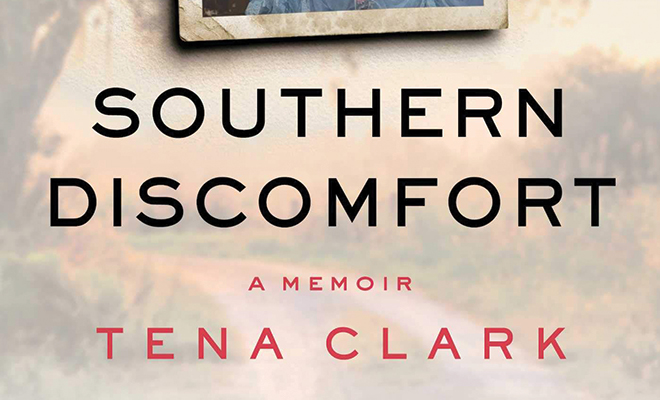
Southern Discomfort by Tena Clark
Love pervades Tena Clark’s Southern Discomfort: A Memoir. She describes codependent love, overbearing and controlling love, maternal love, self-love and self-acceptance and, ultimately, understanding and forgiveness.
She grew up in the boiling stew that was small-town Mississippi in the 1950s, 1960s and 1970s and pens a life story that reads like a novel written in first person. Throw into that pot the adolescent hormones of emerging and confusing gender identity mixed with the pervading “let’s not talk about that” attitude of the day and we wonder how Payne maintained her sanity.
She dedicates the book to the memory of three people who shaped her early years: her mother, Vivian Clark; Virgie Chapman, who helped raise her; and Lamar Clark, her father, a wealthy businessman who wanted Tena to follow in his footsteps.
Lamar Clark was always in charge. He had worked his way up from nothing, starting in his father’s fields and sawmill, doing day labor, and by his early 30s he was the richest man in Waynesboro, possibly in all of Mississippi. “Even before he made his real money, my father dressed meticulously…He drove around town like he was the mayor, stopping and glad-handing various merchants and other folks richer than he…He was always making deals.” And he loved women, a bone of contention between him and Vivian following their marriage. She often told her daughters, “Your daddy is a complicated man.”
Vivian Clark transcends the caricature of an unhappy wife with dignity, humor and grace. One of the prettiest girls in 1930s Wayne County, she dreamed of making something of her life besides being a wife and mother, longing to be a songwriter and performer with a big band in New Orleans. “Mama always had an air of mystery about her that most people, particularly men, found irresistible. Her eyes would sparkle with delight, but her face would remain calm, placid even, the corners of her mouth just barely lifting into an impish smile.” Married at 15, four daughters but no sons later, she and Lamar were miserably unhappy. She still wanted a music career, he wanted her to look pretty for him and raise their children. That was it. No discussion. Vivian did all that, although she often needed a tumbler of bourbon to make it through the day.
Virgie Chapman was born in the Mississippi cotton fields, the child of freed slaves who had to give her up for adoption. She worked in those cotton fields until she came to work in the Clark home in 1958. “It was Virgie who ran my bath and brushed my hair and kissed my scraped knees…Often it was Virgie who tucked me in at night, sometimes after putting Mama to bed and cleaning up one of her messes in the bathroom…Virgie was comfort. She was also safety. And in my world there was very little of that.”
Lamar and Vivian’s dysfunctional marriage continued to create turmoil for the family. Clark describes a minimum of two incidents during which Vivian, intoxicated, brandished a pearl-handled Colt .38 at Lamar. She finally left him, and Clark seesawed between the family home and Vivian’s home.
Yet Lamar’s bond with his daughter was as strong as it would have been with the son he never had. He took Tena with him to visit his bookie regularly. “While I didn’t have his ruthlessness, I spoke my mind and could match his stubbornness toe to toe. He loved and hated my strong will, and he wasn’t so crazy about my big mouth when it challenged him. Still, we were a team.” The relationship continued to be volatile, particularly after Clark, as a successful young woman in the music business, refused to come home to take over his businesses.
Tena Clark is a Grammy-winning songwriter, producer, entrepreneur and social activist. She has worked with some of the biggest stars in music and the arts, including Aretha Franklin, Patti LaBelle, Dionne Warwick and Maya Angelou. Her company, DMI Music & Media Solutions, develops brand campaigns using original music and marketing and is a certified woman-owned business through WBENC. In 2012, Clark, choreographer Debbie Allen and playwright Eve Ensler collaborated on “Break the Chain” for One Billion Rising, the biggest mass action to end violence against women. The campaign began as a call to action based on the staggering statistic that 1 in 3 women on the planet will be beaten or raped during her lifetime.
Readers who over their lives have experienced segregation, alcoholism, homophobia and addiction will feel recognition in her descriptions. I will emphatically warn you that the language depicted in some conversations is distasteful and shocking, yet unfortunately accurate. So is the refrain, “That’s just the way it is.” Read for yourself, and make a vow that for the future, that’s not the way it will be. ■







